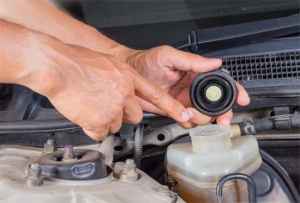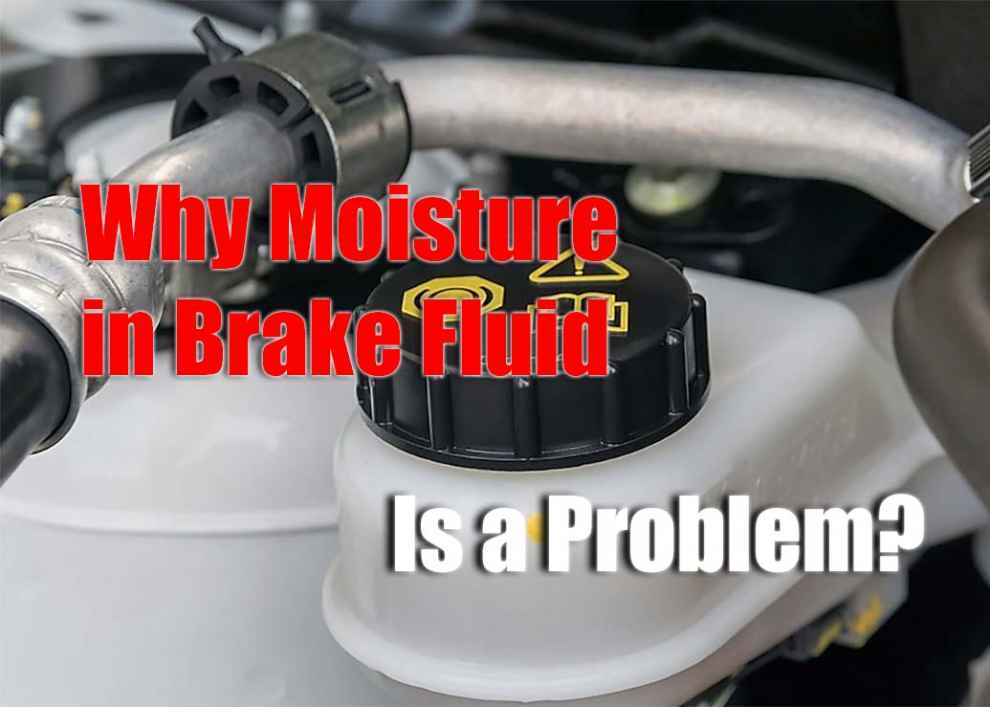Moisture in the brake fluid can cause various issues, leading to loss of braking performance and, ultimately, dangerous situations on the road. In most vehicles, brake fluid is hydraulic and is responsible for activating the brakes when pressurized by depressing the brake pedal. The brake system relies on high pressure to transmit force and move parts such as calipers or wheel cylinders when you apply your brakes; if moisture is present in this system, it will reduce that pressure by compromising the integrity of the brake lines as well as corroding components and introducing air bubbles into the system. In addition to this, water will increase the boiling point of your brake fluid (the temperature at which it boils), leading to a decrease in stopping power when heat builds up under heavy braking conditions like going downhill or braking quickly from high speeds; this phenomenon is known as “brake fade” or “brake boiling”.
Causes of Moisture in Brake Fluid

Effects of Moisture in Brake Fluid
The effects of moisture on your braking system will depend on how much water is present; this can range from a slight decrease in performance all the way up to complete failure depending on how severe it has degraded over time. The most immediate consequence will be that you experience reduced stopping power; this could mean that you have to press your brake pedal harder or longer in order to achieve the same amount of deceleration. Furthermore, as the water content increases, the boiling point of your brake fluid will be lowered, which can cause a phenomenon known as “brake fade;” when this occurs, it can cause a complete loss of braking power as the brake fluid boils and cannot transfer force from your brakes to your wheels. In addition, moisture will also corrode components within the system, such as pistons and calipers; this corrosion could lead to cracks and leaks, further reducing performance. Also see here the brake pads for Jeep Grand Cherokee.
Solutions for Removing Moisture from Brake Fluid
The best way to remove moisture from brake fluid is by flushing out old fluid with new clean, dry fluid through a process known as “bleeding brakes”. This involves having an experienced mechanic opening up each wheel cylinder and replacing it with fresh brake fluid while simultaneously removing any air bubbles and contaminants that may be present in the system. This process should help restore optimal braking performance and reduce any corrosion caused by water buildup over time. It is important to note that regular maintenance such as checking for leaks or worn seals should be done regularly in order to help prevent future moisture buildup in the system.
Conclusion
Moisture in brake fluid can have a significant impact on the performance of your vehicle’s braking system and can even lead to dangerous situations if it is not addressed in a timely manner. Understanding the causes and effects of moisture buildup as well as solutions for removing it will help ensure that your brakes remain working properly and safely when you need them most.

Add Comment